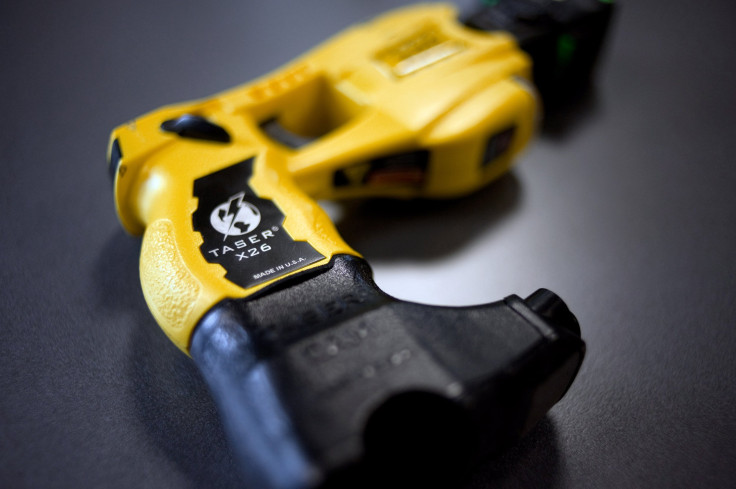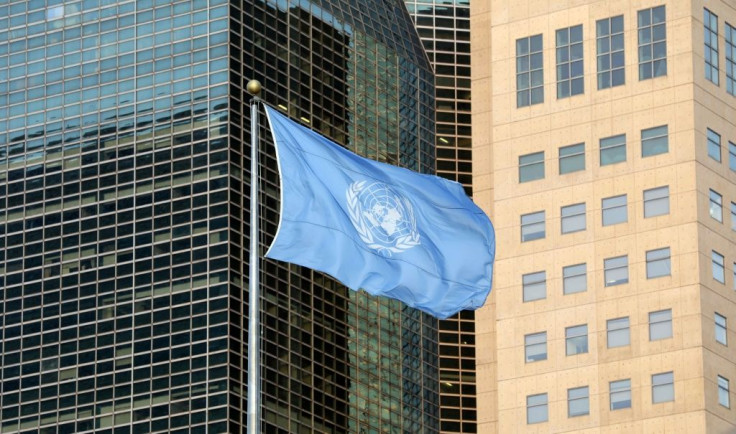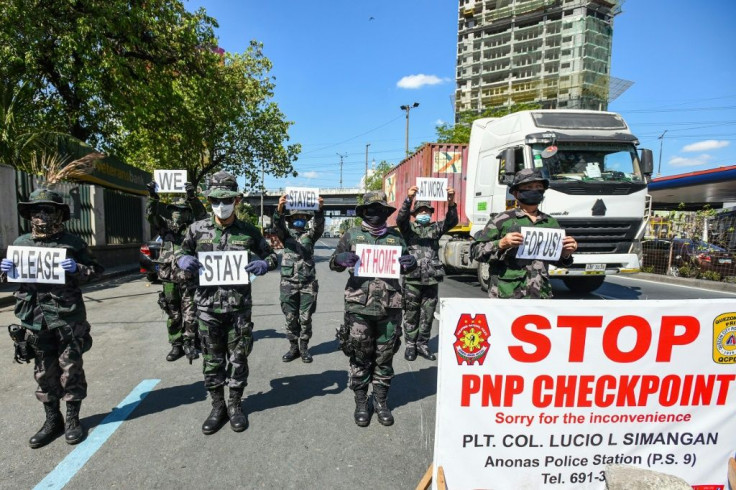Philippine Police To Acquire Taser After UN Calls Out Country’s Military Enforcement Amid Lockdown

KEY POINTS
- The United Nations for Human Rights called out countries which enforce heightened military response amid coronavirus lockdown, including the Philippines
- The UN High Commissioner said it’s unlawful to shoot, detain and abuse someone who violated the curfew out of desperation for sustenance
- The UN is also against detaining of curfew violators because prisons and jails are high-risks environments for spreading the virus
- The Philippines, in order to handle violent situations and unruly people, plans to acquire taser guns
- The procurement for such equipment is still subject to deliberation and evaluation
The Philippines made it to the news headlines after the United Nations called out the country for its heightened military response to lockdowns amid the coronavirus pandemic. Just days after, the Philippine National Police announced its plan to procure taser guns to be used amid the enhanced community quarantine.
The United Nations saw issues with “highly militarized response” to violators of the quarantine and cited the Philippines for arresting 120,000 Filipinos who violated the curfew amid the coronavirus quarantine period, Asian Journal reported.

UN High Commissioner for Human Rights, Michelle Bachelet, issued a statement on Monday highlighting that they received several reports from different regions relative to the excessive —at times lethal— use of police and security forces to make people follow lockdowns and curfew.
High Commissioner Bachelet said that it was unacceptable and unlawful to shoot, detain or abuse someone who broke the curfew out of desperation to look for sustenance.
Talking to media in an online press conference, U.N. Human Rights Director of Field Operations Georgette Gagnon, said that thousands of people had been arrested or detained for curfew violations, UN News reported. Director Gagnon called the practice unnecessary and unsafe because jails and prisons could be considered as high-risk environments for the spread of the virus.
Meanwhile, Director Gagnon said that tear gas, water guns and whips were used to enforce social distancing in shopping lines and outside people's homes in South Africa, Big News Network reported.
Various human rights group stood up and condemn violation amid the coronavirus pandemic, and the subject to their criticisms are the police. In the Philippines, the National Police received backlashes and complaints on how the alleged quarantine violators were reprimanded.
Thus, the Philippine National Police, who wanted to avoid using firearms amid the implementation of community quarantine, has planned to acquire taser guns in order to handle “violent situations” and disorderly civilians. PNP Chief General Archie Gamboa, during an online press briefing on Thursday, said that taser could be categorized as non-violent or “equipment other than firearms,” Inquirer reported.

General Gamboa said that the Directorate of Logistics under the procurement management committee would still deliberate and evaluate the proposition and what to procure.
In light of the situation, Commissioner Bachelet called for law enforcement officials to adhere to the principles, legality, necessity, proportionality and precaution. She said that the only time force could be used is when it’s necessary. In addition, the lethal force could be applied when there’s an imminent danger.
© Copyright IBTimes 2024. All rights reserved.





















